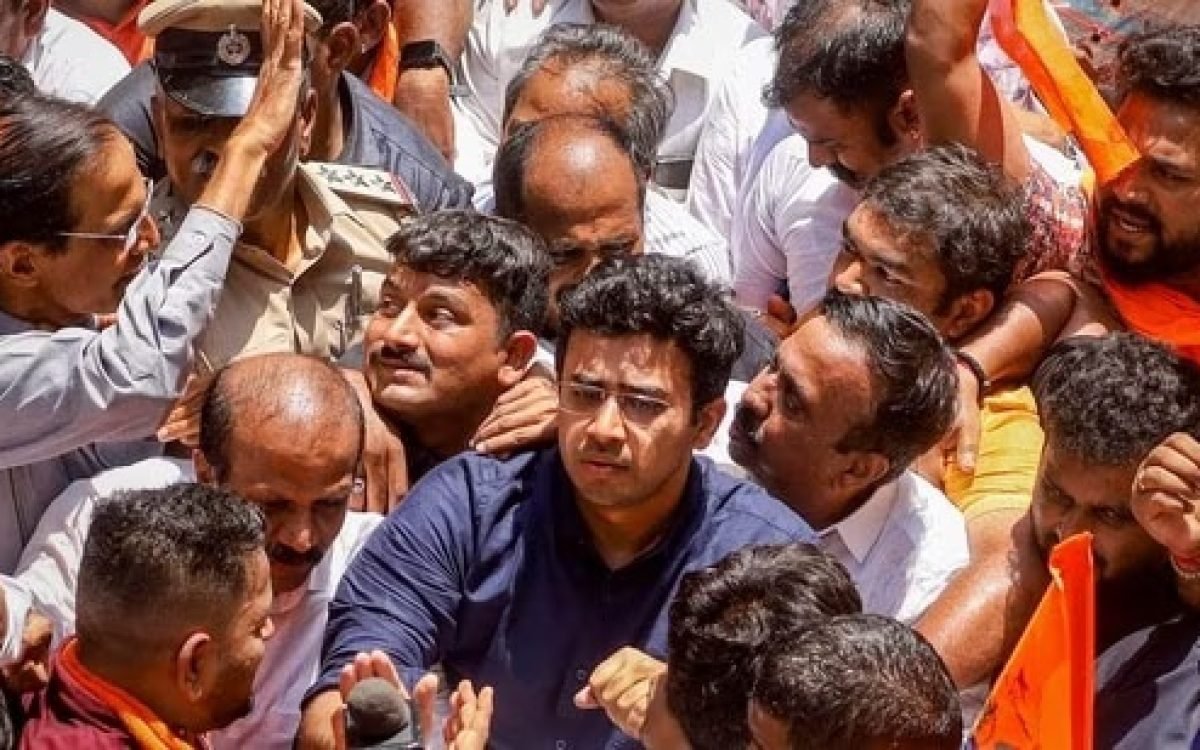In a tumultuous turn of events in Bengaluru, the city finds itself embroiled in religious tensions following a controversial altercation between a shopkeeper and a group of individuals during ‘Azaan’ time. The incident, which sparked outrage and led to widespread protests, has now resulted in an FIR being registered against several Bharatiya Janata Party (BJP) leaders.
The FIR, filed by the Halasuru Gate police, names 41 individuals, including BJP MPs Tejasvi Surya and PC Mohan, as well as Union Minister Shobha Karandlaje. These leaders, nominated by the saffron party for the upcoming Lok Sabha election, have found themselves at the center of a political storm over their participation in the protest regarding the altercation.
The incident itself unfolded on Sunday when a group of men reportedly assaulted a shopkeeper for playing the Hindu devotional bhajan “at a high volume” during ‘Azaan’ time. The subsequent arrest of three individuals connected to the assault, coupled with the circulation of a video capturing the incident on social media, ignited public outrage and fueled a political slugfest.
Tuesday saw the streets of Bengaluru filled with protesters, waving saffron flags and chanting “Jai Shree Ram” slogans. Among the protesters were BJP leaders Karandlaje and Surya, who were later detained by the police. The BJP, while condemning the incident, accused the ruling Congress government of appeasement and questioned the state’s law and order situation.
Tejaswi Surya, in a scathing attack on the Siddaramaiah-led government, highlighted the growing concerns over safety and security in Bengaluru. He questioned the government’s efforts to build the brand of the city amidst escalating incidents of violence and unrest. Surya’s remarks underscore the broader implications of the incident, reflecting a deep-seated apprehension among citizens regarding the prevailing law and order situation.
The events unfolding in Bengaluru serve as a stark reminder of the delicate balance between religious freedom and communal harmony in a diverse society. As political rhetoric intensifies and tensions simmer, it becomes imperative for authorities to address the underlying grievances and ensure the safety and security of all citizens.
The road ahead for Bengaluru remains uncertain, with the specter of religious discord casting a shadow over the city’s cultural fabric. As stakeholders grapple with the fallout of the recent events, the need for dialogue, tolerance, and mutual respect emerges as a guiding principle in navigating these challenging times. Only through collective efforts and a commitment to unity can Bengaluru hope to overcome its current trials and emerge stronger as a symbol of inclusivity and diversity.









